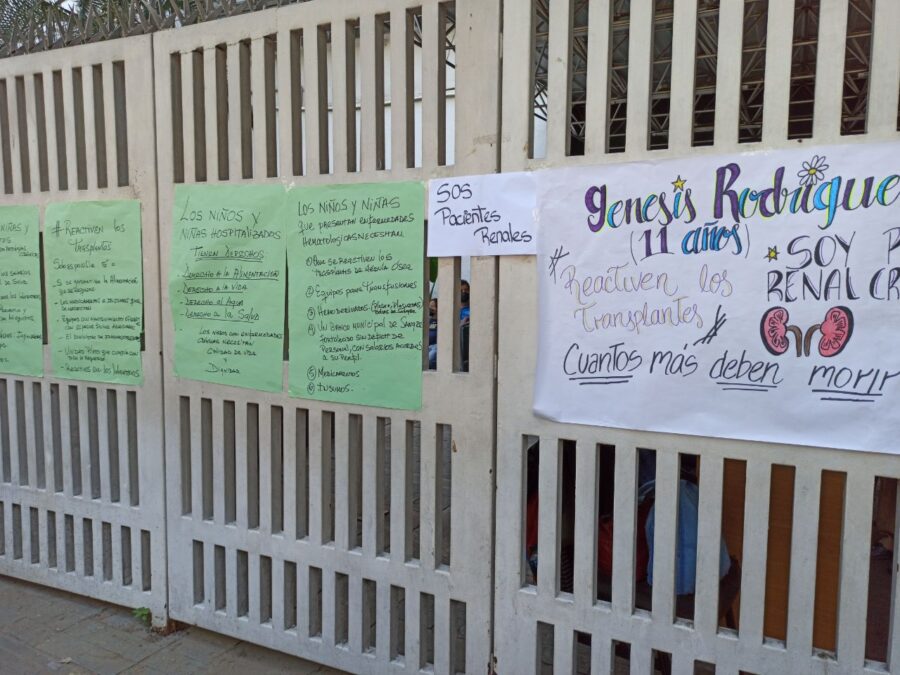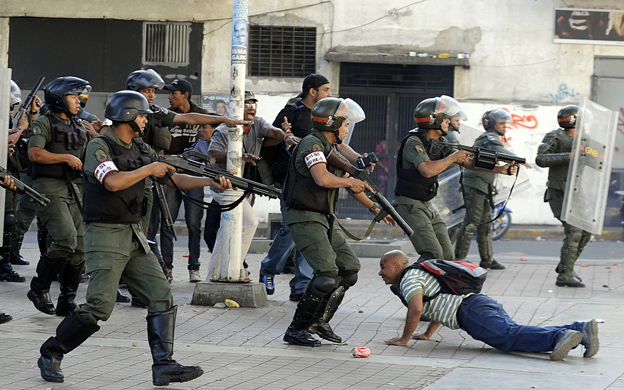The associate researcher at the UCAB Human Rights Center, Ligia Bolívar, expressed that although several authorities in Colombia have incited xenophobia, others have assisted vulnerable Venezuelans.
After a quarantine was decreed due to the coronavirus pandemic, a group of Venezuelans who had migrated to Colombia returned to the country or have remained in the border area looking for a way to return, due to difficulties in making a living and paying rent.
A large number of buses from various cities in the neighboring country began to arrive mainly in the department of Norte de Santander, carrying Venezuelans wanting to return to their country. The returnees found it difficult to cross the border because there is no coordination on the Venezuelan side to let them enter, causing inconveniences in cities like Cúcuta.
Weeks after the isolation began, the cases of evictions of Venezuelans in Colombia became known. Several had to remain on the streets or sleep in public squares. The situation aggravated as the evictions multiplied. The mayor of Bogotá, Claudia López, evaded responsibilities in this regard, ensuring that this was the competence of the national government.
Neither income nor healthcare
Meanwhile, a large number remains in other regions trying to work out their situation. In a conversation with TalCual, the associate researcher at the UCAB Human Rights Center, Ligia Bolívar, assured that one million twenty-six thousand Venezuelans are in the greatest situation of helplessness due to their irregular migrating status in the neighboring country, where they have to confront the consequences of local and regional leaders fueling xenophobia and practicing discrimination.
-Why are so many Venezuelans in Colombia wishing to return?
-They are people who have no fixed income. They cannot pay rent or stay on the streets. It is a population with an irregular migration status, they are not covered by the health system. They are unemployed and without a roof; It is a precarious situation. I am not saying that they are going to be better off in Venezuela because they are not going to have a job or healthcare or income either. I do not know if they have relatives that can accommodate them.
Persecution and support
-How have the Colombian authorities reacted to the situation?
– It has been mixed, a little of everything; some are mayors, including that of Bogotá, have evaded it; The mayor of Bogotá says that her function is to take care of Colombians citizens of Bogotá and that foreigners from Venezuela are the responsibility of the Department of Migration, but that is not the function of this organism. Statements followed where she declared having deported Venezuelans who allegedly participated in looting as if she could deport someone. It is an obscene thing.
“Then there is the case of the mayor of Pamplona, who shut down the care centers and shelters. In some facilities without proper conditions, avoiding overcrowding was a basis for the measure; but it did not take into account the differences, every facility was affected. Then they would evaluate which ones did or did not meet the requirements. The Governor of Arauca offered a reward for anyone reporting the whereabouts of some Venezuelans who allegedly entered from Venezuela infected by the coronavirus. These are not only politically incorrect expressions from health policy but it also promotes xenophobia, because the rulers are pointing to Venezuelans as causing the pandemic,” said Ligia Bolivar.
She added that the situation is disparate because some authorities hold acceptable positions from public health and migration. In this regard, she highlighted the attitude of the Colombian president, Iván Duque, who said that no person should be left out of the assistance policies and that they could not be discriminated against on the grounds of nationality. He also mentioned that the mayor of Cúcuta has been extremely willing and open to provide support, as well as some authorities from other departments, who have provided buses to take people wanting to reach the border.
By deception
-Have humanitarian actors and human rights defenders been able to carry out their work?
-In the case of humanitarian aid personnel, they can continue working because they have a safe-conduct; they are assisting people who have been evicted and now sleep in public squares in Bucaramanga and other places. Traditional Colombian organizations and coordinated groups of Venezuelans have been working because they have the capacity and safe-conducts.
“Human rights activists face more difficulties because they do not have a pass; perhaps some that carry out a certain type of managerial responsibility do have one, but most are under lockdown and working from home, “she said.
Ligia Bolívar maintained that the reception in Venezuela has been quite negative on behalf of the State and that many people have mobilized towards the border many times by deception. In this regard, she explained that the first groups of Venezuelans, as reported by organizations that remain active in Norte de Santander, Colombia, left with the expectation of being transferred to red buses on the other side, but two and even three days passed without any bus arriving. “No one told them about the reception policies; people wanting to get home were put in isolation quarantine, “she said.
-Do you have a projection of the number of people in the process of returning?
-We have heard many figures. The so-called “protector” of Táchira state, Freddy Bernal, speaks of 15 thousand; someone else said it could reach a million and a half, a figure that we estimate does not correspond to reality. Not everyone in a vulnerable situation is going to return because they know there is no reception policy; they left Venezuela because they had no access to food, healthcare, or any support, then why are they going to return? To go through the same? Maybe some still have some family backing, but whether it is widespread is highly questionable.
“The migratory flow that we used to have from Venezuela was five thousand people per day. Right now there is not a return rate of five thousand per day. Sometimes 300 or 400 people return a day, but this is not even 10% and it is not constant over time. The previous figure was constant during two or three years, “said Ligia Bolívar.
Obligations
-How do these evictions and the actions of the authorities refusing to care for Venezuelans violate the provisions on human rights?
-In all possible ways. Without specifically addressing the coronavirus issue, all international human rights standards have non-discrimination as a fundamental principle. This means that any person under their jurisdiction, regardless of race, age, sex, religion, or immigration status, is under the protection of the State. If the State does not have the means to provide protection directly, it can call for international cooperation. International cooperation has assisted States well before the pandemic emergency, to address the migratory crisis.
Ligia Bolívar added that, beyond the principle of non-discrimination and other conventions on the general protection of the population, doctors, and health personnel, 10 documents from international and regional organizations, such as the United Nations and the Inter-American Human Rights Protection System, clearly establish obligations to the States vis-à-vis the migrant population.
Insufficient aid
-Have you verified that aid is reaching people?
-General aid is coming through the channels established by international organizations in charge of this. I do not have information on any kind of lack of transparency in some countries.
-What about healthcare and medicines?
-I can neither affirm nor deny. Assistance is being provided, humanitarian agencies are working, I would not say the same but more than before precisely because there is an emergency. We do not specifically follow up on resource management, but before the emergency was declared, the resources requested by the interagency response platform for Venezuela, formed by UNHCR and the International Organization for Migration, cover only three percent of the budget needs. That was informed 10 days ago. I am not sure if more funds will be available soon, as the pandemic diverts the resources to other emergencies.
Agreements
-How do you summarize the situation of Venezuelans in Colombia?
-The most vulnerable population in Colombia is the share of Venezuelans in irregular conditions. It is more than half of the population of Venezuelans in Colombia. The situation is precarious. They cannot go outside to earn an income, they do not have the means to feed themselves, pay for housing, or have access to the health system. They have access in cases of an emergency, but the definition of what constitutes an emergency is not yet clear. About 60% of the Venezuelan population in Colombia is in an irregular condition. This is one million and twenty-six thousand people out of one million and eight hundred thousand Venezuelans living in Colombia.
“Of course,” she adds. “Not all of them are going to return. Many have stayed in their homes, with no plans to leave the country. In some cases, their landlords have been flexible. Some throw people away, but that means throwing away a source of income. Others hold on, reach an agreement, and do not lose the tenant; they hope that in a couple of months the country will open up and the person will be able to pay again. Besides, the properties are in very bad condition: Who else is going to rent a room with four mats and no private bathroom? ”, concluded Ligia Bolívar.




